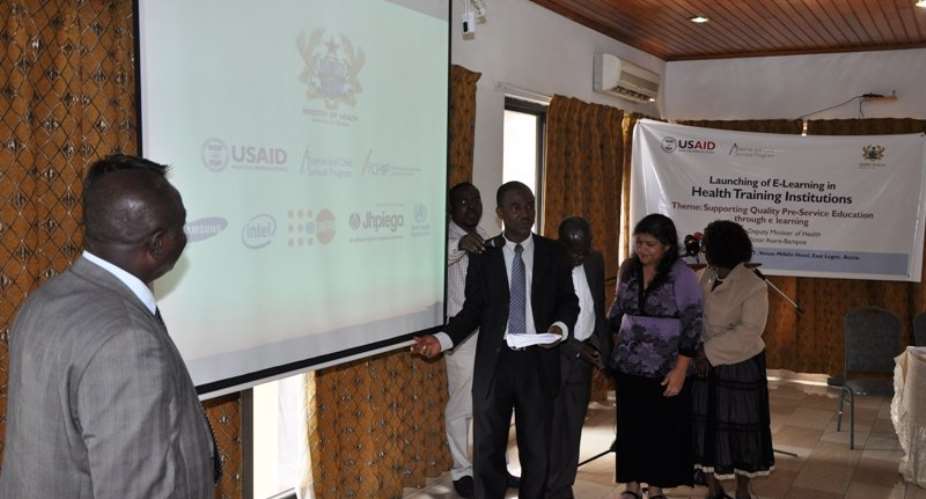Accra, May 6, GNA - Midwives in Ghana are now using modern innovative technologies to access midwifery education to strengthen their capacity in saving the lives of women during delivery.
The e-learning modules would deal with three of the most life-threatening complications of childbearing: haemorrhage; prolonged and obstructed labour that at times could lead to fistula and preeclampsia and eclampsia.
It would also enable learning modules or lessons to be uploaded on a platform that all participating schools could access in their computer laboratories or on students and tutors personal computers.
Mr Alexander Yaw Arpal, Director of Human Resource of the Ministry on behalf of the Deputy Minister, Dr Victor Bampoe launched the initiative in Accra.
He said the initiative would provide to students and tutors the relevant online reference materials, encourage knowledge sharing among various professionals and reach students with standardised learning content.
UNFPA and Jhpiego, an affiliate of John Hopkins University, have developed the content for the training in partnership with Intel, the World Health Organisation.
The programme, which utilises the Intel's skooolHEâ„¢ platform, is a multimedia content delivery and assessment solution that enables education to take place anywhere, anytime using computers and low cost netbooks.
Whereas Jjpiego, a world renowned international NGO with expertise in capacity building and developing the multi-media content for the e-learning modules, UNFPA would also be providing the overall project management, coordination, and implementation.
Mr Arpal noted that the models would transform the way training is provided to frontline healthcare workers by improving access and by reinforcing right clinical decision making skills.
He noted that the programme, which was piloted in six nursing and midwifery institutions successfully, would be rolled out in all the 138 nursing and midwifery training schools.
He commended the Jhpiego and the UNFPA for USAID for their financial assistance and assured that the Ministry would ensure that various strategies and initiatives worked and sustained to yield the expected outcomes.
Ms Chantelle Allen, Jhpiego Country Director, said the purpose of the modules is to create high quality, globally endorsed, e-learning modules that governments could use for training of health care workers or adapt to local needs in any language.
According to her the modules also had built-in quizzes, which could help track the progress of the health workers in doing these training.
These quizzes could be performed offline and the results transmitted via the web whenever the student goes online. Additional modules on life-saving skills, family planning and essential newborn care were in the works.
She explained that after the pilot, students and tutors who used the models found it helpful and asked for more elaborate standardised modules in midwifery training schools.
GNA





 We’ll no longer tolerate your empty, unwarranted attacks – TUC blasts Prof Adei
We’ll no longer tolerate your empty, unwarranted attacks – TUC blasts Prof Adei
 Bawumia donates GHc200,000 to support Madina fire victims
Bawumia donates GHc200,000 to support Madina fire victims
 IMF to disburse US$360million third tranche to Ghana without creditors MoU
IMF to disburse US$360million third tranche to Ghana without creditors MoU
 Truck owner share insights into train collision incident
Truck owner share insights into train collision incident
 Paramount chief of Bassare Traditional Area passes on
Paramount chief of Bassare Traditional Area passes on
 Two teachers in court over alleged illegal possession of BECE papers
Two teachers in court over alleged illegal possession of BECE papers
 Sunyani: Victim allegedly shot by traditional warriors appeals for justice
Sunyani: Victim allegedly shot by traditional warriors appeals for justice
 Mahama vows to scrap teacher licensure exams, review Free SHS policy
Mahama vows to scrap teacher licensure exams, review Free SHS policy
 Government will replace burnt Madina shops with a new three-story, 120-store fac...
Government will replace burnt Madina shops with a new three-story, 120-store fac...
